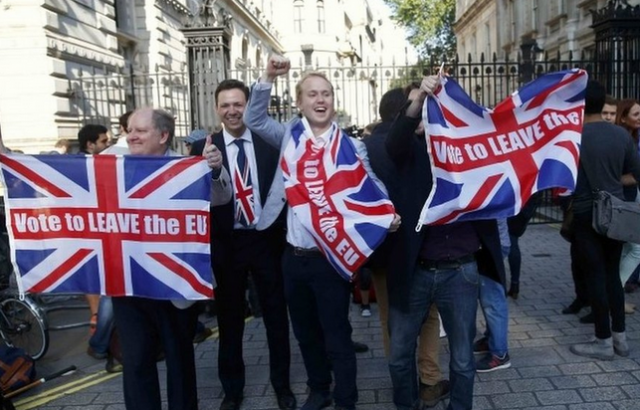Olive Oil, Tea Kettles, and Toasters: The Untold Brexit Story

There is no single reason Britons voted to sever ties with the European Union, but for many, decentralized, unelected foreign bureaucrats with bone-headed, meddlesome ideas was all the convincing needed to call it quits.
So ridiculous were some of the EU’s proposed regulations that even the wildest American legislators look somewhat sane by comparison.
Forget migrant assimilation difficulties, terrorism, and financial woes. What and how people ate became a regulatory priority. Sound familiar?
A handful of overly nitpicky proposals provide a glimpse into a microcosm of over-reach frustration.
That time the EU tried to ban refillable olive oil jugs from restaurant tables
In 2013, the EU pissed off the entire union over a proposal that would’ve banned those little refillable jars of olive oil kept on restaurant tables for delicious bread-dipping in favor of sealable jars.
Brexit agitator and organizer, Nigel Farage, rightly mocked the idiocy, “I’m sure the citizens of Europe will all clap and cheer loudly that the grave and mortal danger of olive oil in dipping bowls has been removed by the officials. Well done, everybody.”
Public outcry over the proposed olive oil regulation ultimately resulted in its demise, but the damage had already been done.
Olive Oil Times explored:
Was the olive oil decree the last straw?In May, 2013, Julie Butler reported in Olive Oil Times that countries who favored the new rules for serving olive oil included, not surprisingly, the territories where much of the world’s highest quality olive oils are produced — Italy, Spain, France and Greece, among them. Voting against the move were nine countries, while the UK abstained.But in a post on ABC News, the AP’s Raf Casert pointed directly to the olive oil controversy as an example of the underlying resentment that may be fueling the “British Euroskeptics who have railed for years against what they see as the EU’s excessive intrusion into daily life with a long list of petty rules.” Here was a case in point of “overreach that promised to irritate everyone who loves to dip crusty bread into oil,” he said.
That time the EU wanted to crackdown on tea kettles and toasters
The EU has kept new eco-restrictions for high-powered appliances like hair dryers, tea kettles, and toasters close-chested until after the Brexit referendum vote, for fear the new regulations would be perceived as targeting Britain’s favorite breakfast — tea and toast. Doesn’t matter so much now but still, toasters and kettles?
Matthew Holehouse reported for The Telegraph:
The European Commission plans to unveil long-delayed ‘ecodesign’ restrictions on small household appliances in the autumn. They are expected to ban the most energy-inefficient devices from sale in order to cut carbon emissions. The plans have been ready for many months, but were shelved for fear of undermining the referendum campaign if they were perceived as an assault on the British staples of tea and toast.A sales ban on high-powered vacuum cleaners and inefficient electric ovens in 2014 sparked a public outcry in Britain. EU officials have been instructed to immediately warn their senior managers of any issues in their portfolios that relate to the UK and could boost the Leave campaign were they to become public.The decision to push ahead with the plans soon after the British vote was revealed by Jean-Claude Juncker, the European Commission president, at the weekly College of Commissioners meeting on April 20.Internet routers, hand-dryers, mobile phones and patio jet-washers are also being examined by commission experts as candidates for new ecodesign rules.However, several products may be granted a stay of execution, as officials admitted the plans are a lightning rod for public anger at perceived meddling by Brussels.
They should’ve dressed like Indians and thrown the energy efficient toasters into the English Channel. But I suppose voting to leave the EU works too.
Follow Kemberlee on Twitter @kemberleekaye
CLICK HERE FOR FULL VERSION OF THIS STORY